2021 KEYNOTE SPEAKERS
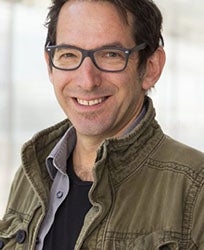
Rob Guralnick
Curator, Biodiversity Informatics, Florida Museum of Natural History, University of Florida
Talk title: Sizing up new uses of natural history collections for ecogeography and global change biology
Short bio: Robert Guralnick is a curator of biodiversity informatics in the Department of Natural History in the Florida Museum of Natural History. He approaches the question of global change using tools that span molecular based approaches to document lineage diversifications over time and space. These methods seek to field ecological approaches that document recent distribution and demography changes. Although trained as an invertebrate biologist, his taxonomic interests are broad, and his work is often collaborative. Guralnick tends to be happiest when connecting dots between developing infrastructure to support new science and showing the power of those approaches for looking at broad scale ecogeographic patterns and their drivers. Outside of work, he tends pets, tries to stay active even during the Florida summers and appreciates a good IPA.
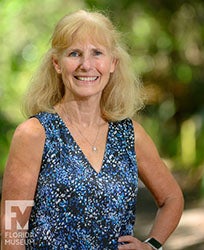
Pamela S. Soltis
Distinguished Professor and Curator, Florida Museum of Natural History, University of Florida
Talk title: Integrative research using natural history collections: examples from herbaria
Short bio: Pamela Soltis is a distinguished professor and curator in the Florida Museum of Natural History at the University of Florida and serves as director of the UF Biodiversity Institute. Her main research interests are angiosperm phylogeny, polyploidy, and the use of digitized natural history collections in biodiversity research. Working with Douglas Soltis and others, she has made fundamental contributions to our understanding of angiosperm phylogeny and plant diversity. They have used this phylogenetic underpinning to address patterns of genome evolution and ancient polyploidy, including ancient whole-genome duplications that mark key clades of angiosperms. Her recent work on digitized natural history collections has addressed novel uses of herbarium specimens in studies of plant diversity. Working with a team of colleagues, she has helped develop outreach products that combine science and art, focusing on understanding, interpreting, and using the Tree of Life.
2021 EARLY CAREER PRESENTERS
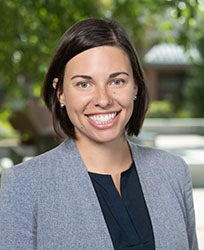
Jocelyn Colella
Postdoctoral Research Associate, Molecular, Cellular, and Biomedical Sciences Department, Hubbard Genome Sciences Center, University of New Hampshire
Talk title: Connecting next-generation museum collections to public health
Short bio: Jocelyn Colella is a collections-based evolutionary biologist who uses mammals as models to understand how organisms change through time, with particular interest in conservation, adaptation and hybridization. Her research integrates genomic, physiological and geometric morphometric perspectives to discover cryptic mammalian diversity, parse reticulate evolutionary histories, and identify mechanisms of adaptation. Colella received her Ph.D. from the University of New Mexico in 2019 where her research focused on hybrid dynamics of high-latitude meso-carnivores. She is now a postdoctoral research associate at the University of New Hampshire where her current research aims to unite natural history collections with biomedical sciences by identifying genetic mechanisms of dehydration-tolerance in desert-adapted rodents to inform gene therapies in humans and the adaptive capacities of species to increasing desertification.
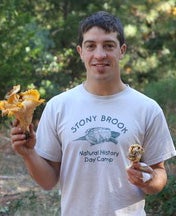
Eric LoPresti
Assistant Professor, Department of Plant Biology, Ecology and Evolution, Oklahoma State University
Talk title: Plants and the materials that stick to them: an ecological and evolutionary investigation
Short bio: Eric LoPresti has been interested in plants and insects for as long as he can remember; a series of wonderful mentors in natural history during his high school and college years slowly transformed this recreational interest in photography and identification into a scientific one. After doing research in college and various ecology and conservation field jobs for a couple years afterward, he joined the lab of Rick Karban at UC-Davis for his dissertation, which focused on relationships of sticky plants and insects. Hoping to build off this field research on species interactions, he joined Marjorie Weber’s lab at Michigan State University for a postdoc where he has focused on similar themes, but in a phylogenetic context.

Alexis Mychajliw
Research Associate, La Brea Tar Pits and Museum
Assistant Professor, Middlebury College
Talk title: Conflicts in context: natural history collections as archives of human-carnivore interactions through time
Short bio: Alexis Mychajliw works at the intersection of conservation biology and paleoecology. She uses clues from genomes, bones and sediments to assess how organisms responded to past anthropogenic and climatic changes on scales from decades to millennia, thereby generating lessons for coexistence in an increasingly human-dominated world. She received her Ph.D. from Stanford University, where she combined excavations of Quaternary deposits with surveys of endangered Caribbean mammals. She has studied museum collections as a postdoctoral fellow at the La Brea Tar Pits & Museum, Hokkaido University and the University of Oklahoma. Mychajliw is also committed to using museums to broaden participation: she developed the first “tar pits” high school research program in Los Angeles and has facilitated the repatriation of Caribbean paleontological material. She will be an assistant professor at Middlebury College in 2021, where she looks forward to cultivating a community-based natural history program.

Daniel Park
Assistant Professor, Department of Biological Sciences, Purdue University
Talk title: Herbarium collections reveal wide variation in plant phenological responses to climate
Short bio: Most recently, Daniel Park was a research associate at Harvard University Herbaria studying how the evolutionary history of species influences, and is influenced by, their ecological interactions. His research focuses on elucidating biogeographic and evolutionary mechanisms of biodiversity patterns in the context of contemporary global environmental problems, notably biological invasions and climate change, with the aim of illuminating how these disturbances affect multiple dimensions of plant diversity across rapidly changing landscapes. Drawing on the fields of biogeography, systematics, ecology and evolution, and using big data, his work explores multiple facets of past, present and future biodiversity to address the grand challenge of mitigating anthropogenic influence on the world’s ecosystems. Park received his Ph.D. from the University of California, Davis.
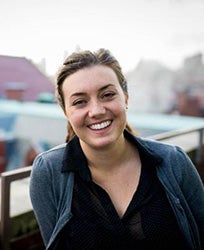
Kelly Speer
Biodiversity Genomics and George E. Burch Postdoctoral Fellow, Center for Conservation and Evolutionary Genomics, Smithsonian Institute of Conservation Biology, National Zoological Park and Department of Invertebrate Zoology, National Museum of Natural History
Talk title: Determining drivers of symbiont evolution in a multi-tier hierarchical system
Short bio: Kelly Speer studies the evolution of blood feeding in flies, specifically the ways in which symbiotic bacteria enable their insect host to specialize on bloodmeal. Frequently, blood-feeding insects are parasites, and Speer’s research takes advantage of the hierarchical nature of host-parasite assemblages to examine hypotheses of community assembly and disease ecology that are difficult to test in wildlife. Speer integrates field work and natural history collections with genomic sequencing, machine learning and modeling to measure the impact of ongoing and past environmental change on parasites and their microbiomes. She grew up in New Mexico, received her M.S. from the University of Florida, earned her Ph.D. from the Richard Gilder Graduate School at the American Museum of Natural History, and is currently a postdoctoral fellow at the Smithsonian Conservation Biology Institute and National Museum of Natural History.
Image credit: Cami Walker
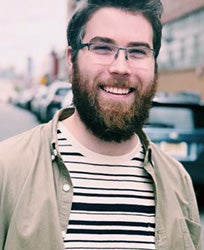
Alex White
Machine Learning Postdoctoral Fellow, Data Science Lab, National Museum of Natural History, Smithsonian Institution
Talk title: Biogeography of fern shapes as revealed by deep learning
Short bio: Alex White studies how the ecological interactions between species underlie broad patterns of biodiversity, such as the latitudinal diversity gradient. He uses morphological and computational approaches to understand how traits mediate the spatial interactions between closely related species and how those dynamics are influenced by historical and contemporary abiotic conditions. His research integrates diverse sources of data such as field studies, museum collections, phylogenies and climate models, with a focus on computational methods in machine learning. He received his Ph.D. from the University of Chicago, where he studied the ecological and evolutionary dynamics of community assembly in Himalayan birds. Currently, he works as a postdoc in the Smithsonian Data Science Lab and the Department of Botany at the National Museum of Natural History.
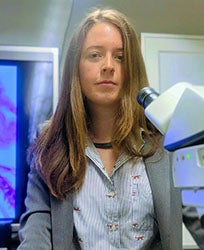
Laurel Yohe
NSF Postdoctoral Fellow, Department of Geology and Geophysics, Yale University
Talk title: Morphological and developmental basis of olfactory evolution: evidence from museum-collected iodine-stained bat specimens and embryos
Short bio: Laurel Yohe is an NSF Postdoctoral Fellow in Biology in the Department of Geology and Geophysics at Yale University working with Anjan Bhullar. She is currently investigating the developmental basis of olfactory diversity in birds, reptiles and mammals. She completed her Ph.D. in evolutionary biology with Liliana Dávalos at Stony Brook University, investigating the molecular evolution of chemosensation in bats. She has also spent a great deal of time doing fieldwork, including many expeditions to Latin America and to Vietnam as a U.S. Fulbright Fellow.


